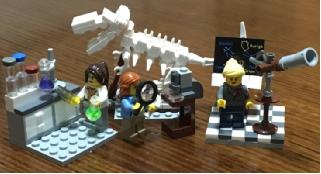The British Embassy’s Be Y♀urself campaign has been running throughout the month of March, recognising the achievements of women in society and in the economy.
So it makes sense to reflect on the contribution of women to science in China. Here in the Science and Innovation Team in Beijing, we rub shoulders with successful women involved in science every day. You might have already read about my team’s meeting with China’s first winner of the Nobel Prize for a science field.
We have space in this blog to tell you about just a handful of the women we have been involved with in our work this month…
Nessa Carey, International Director, PraxisUnico
Qin Chuan, President , Chinese Association for Laboratory Animal Sciences (CALAS)
CALAS co-hosted the 3rd UK-China Seminar on Laboratory Animal Welfare with the British Government earlier this month. Qin Chuan and her team’s involvement has ensured the annual seminar is now considered the top national level seminar in this field. The CALAS Committee under her oversight has drafted the first ever Standard for Animal Welfare in China and it will be published later this year.
Judy MacArthur Clark CBE, Head of Animals in Science Regulation Unit (ASRU) , Home Office
Caitlin Smith, Head, Asia and Europe Team, Arms Export and Policy Department, Foreign and Commonwealth Office
The FCO’s export control policy department is not traditionally associated with promoting science. But Caitlin came here to change that. Seizing the initiative to bring the FCO’s objective to protect the UK’s (and global) security closer to our objective to drive economic growth, Caitlin ran a training session for staff to bust the myths about export controls and their impact on trade with China (did you know that 98% of export licence applications for export of sensitive equipment to China are successful?) and to explore measures to improve our support for UK-China technology collaborations.
Judith Green, National Specialist Leader in Education and National Space Academy Masterclass teacher
Judith is an A-level teacher in Physics and Chemistry. She holds Advanced Skills Teacher status, and is one of the top science teachers in the UK. She works with the UK’s National Space Academy and the European Space Agency to develop new chemistry teaching methodologies using space science. This month, Judith, with the NSA team, launched a programme in schools to offer teacher and student space science masterclasses in schools across China. In her awe-inspiring masterclasses in China she “cooked up a comet” (pictured).
Women are driving forward the UK-China science relationship, alongside their male counterparts. For us in SIN China, contact with amazing women (and, well ok, amazing men too) is normal. My hope is that we can live in a world where seeing women in positions of influence and leadership, including our Ambassadors, can become so universally normal (not just in the science world) that it is no longer worthy of note, and certainly not worth a page of this blog.

